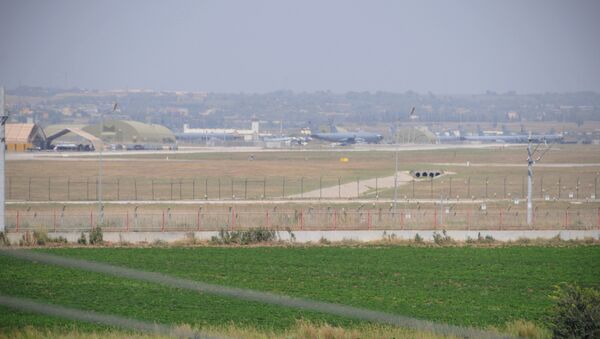"The continued presence of these weapons at five sites in Europe, particularly in Turkey, raises serious risks of their seizure by terrorists or other hostile forces," the center said in a new report titled "B61 Life Extension Program: Costs and Policy Considerations."
In a statement accompanying the report's publication, the think tank stressed that a protracted civil conflict in Turkey would make the fate of the weapons uncertain, citing the events during Turkey's July 15 attempted coup.
The base was impacted significantly by the July 15 events and their aftermath. Former base commander Gen. Bekir Ercan Van was arrested over alleged involvement in the plot, while Turkish authorities cut the base's electricity supply off and prohibited US planes from taking off.
“From a security point of view, it’s a roll of the dice to continue to have approximately 50 of America’s nuclear weapons stationed at Incirlik Air Base in Turkey, just 70 miles from the Syrian border…These weapons have zero utility on the European battlefield and today are more of a liability than asset to our NATO allies,” Laicie Heeley, a Stimson Center researcher and the report's co-author, was quoted as saying in the statement.
The Stimson Center recommended the removal of all B61 bombs from Europe, stressing that a total over $6 billion could be saved by such a move.
Earlier in August, the US National Nuclear Security Administration approved the production engineering phase for the B61-12 life extension program as a part of the country's drive to modernize it nuclear arsenal. The lives of over half of all B61 bombs are set to be extended.
The Incirlik base is used by the United States and US-led coalition combat planes when launching airstrikes in Syria and Iraq against the Islamic State group, which is outlawed in many countries including Russia. The base is located in the city of Adana, several dozen miles from the Syrian border.



